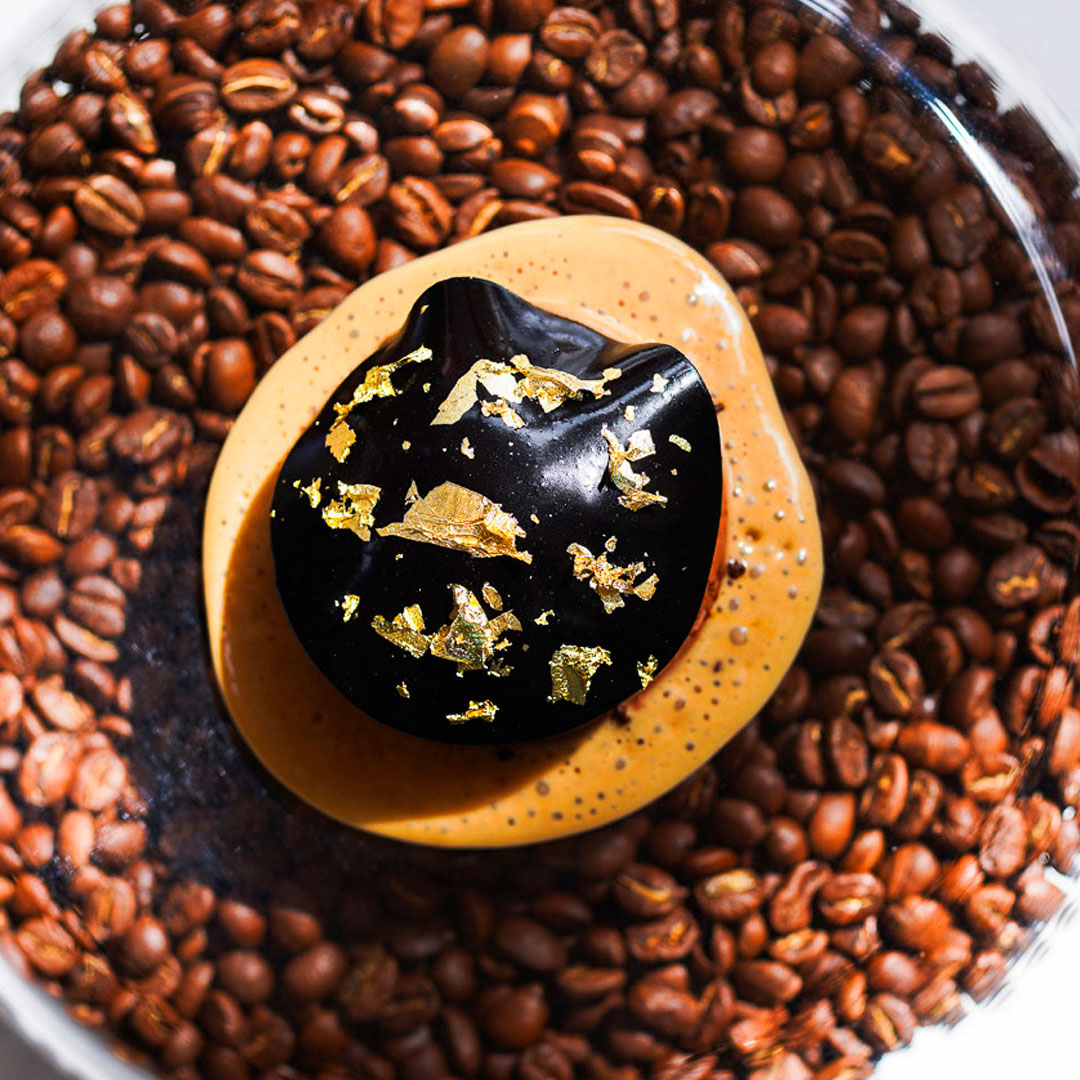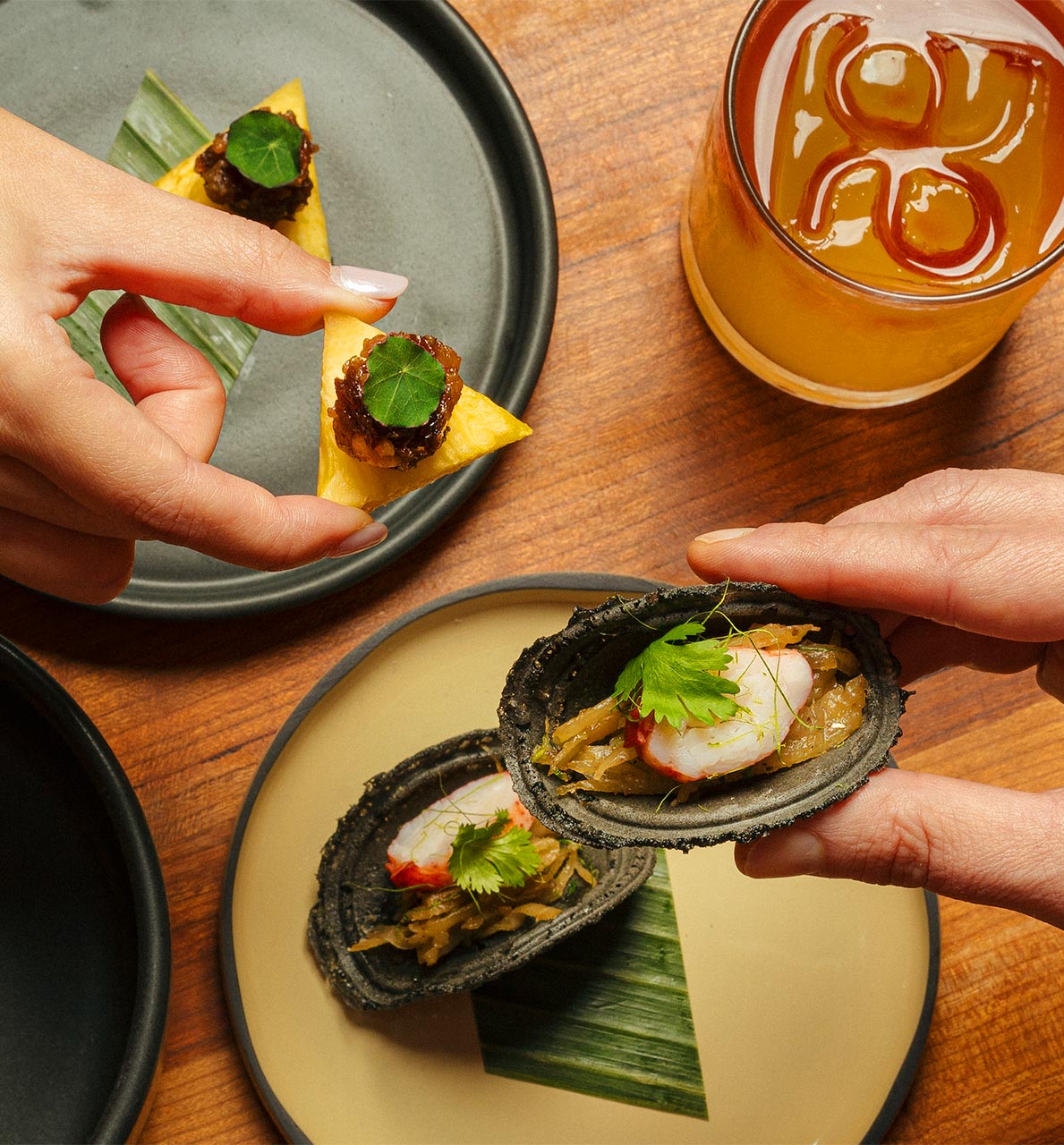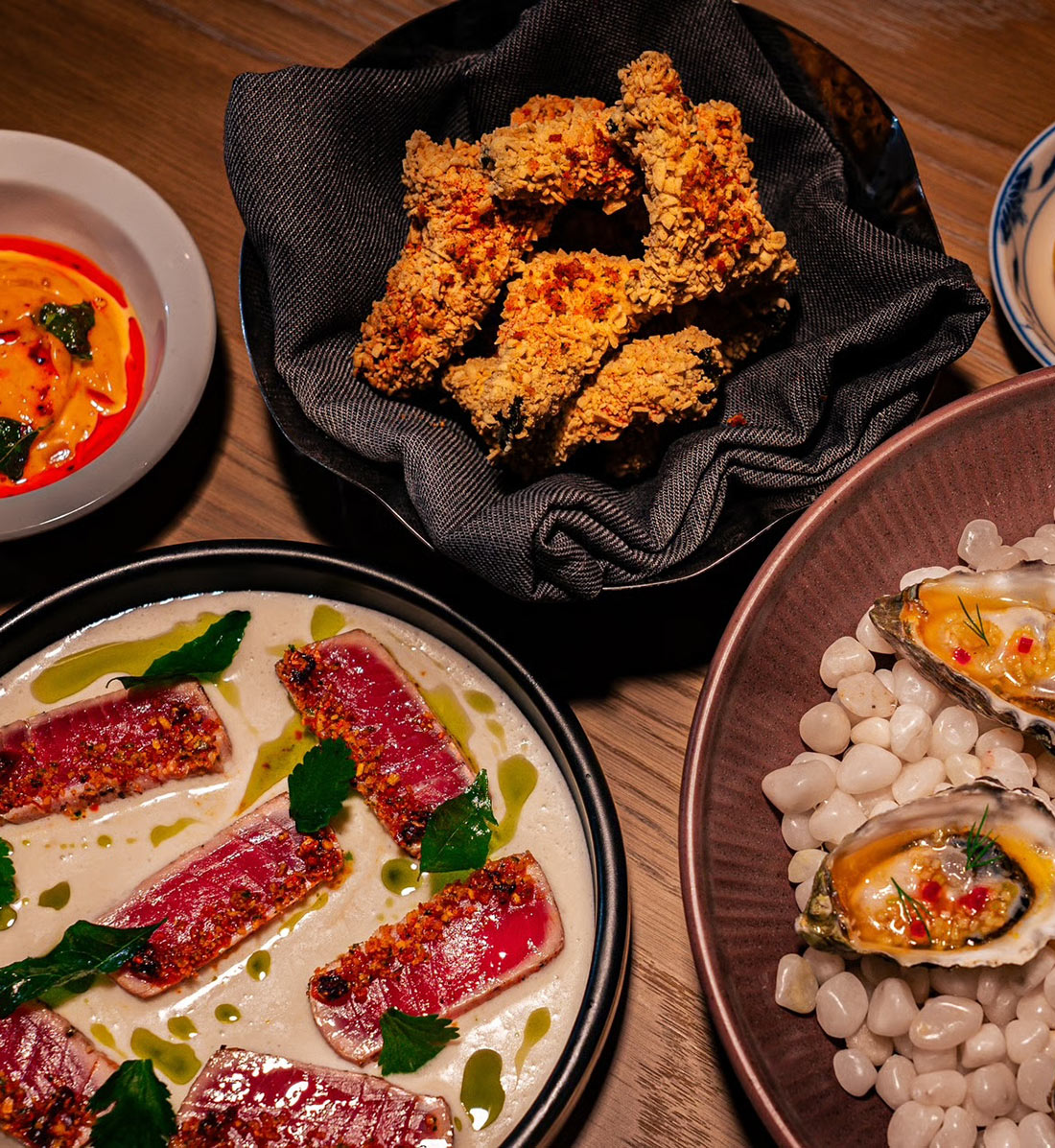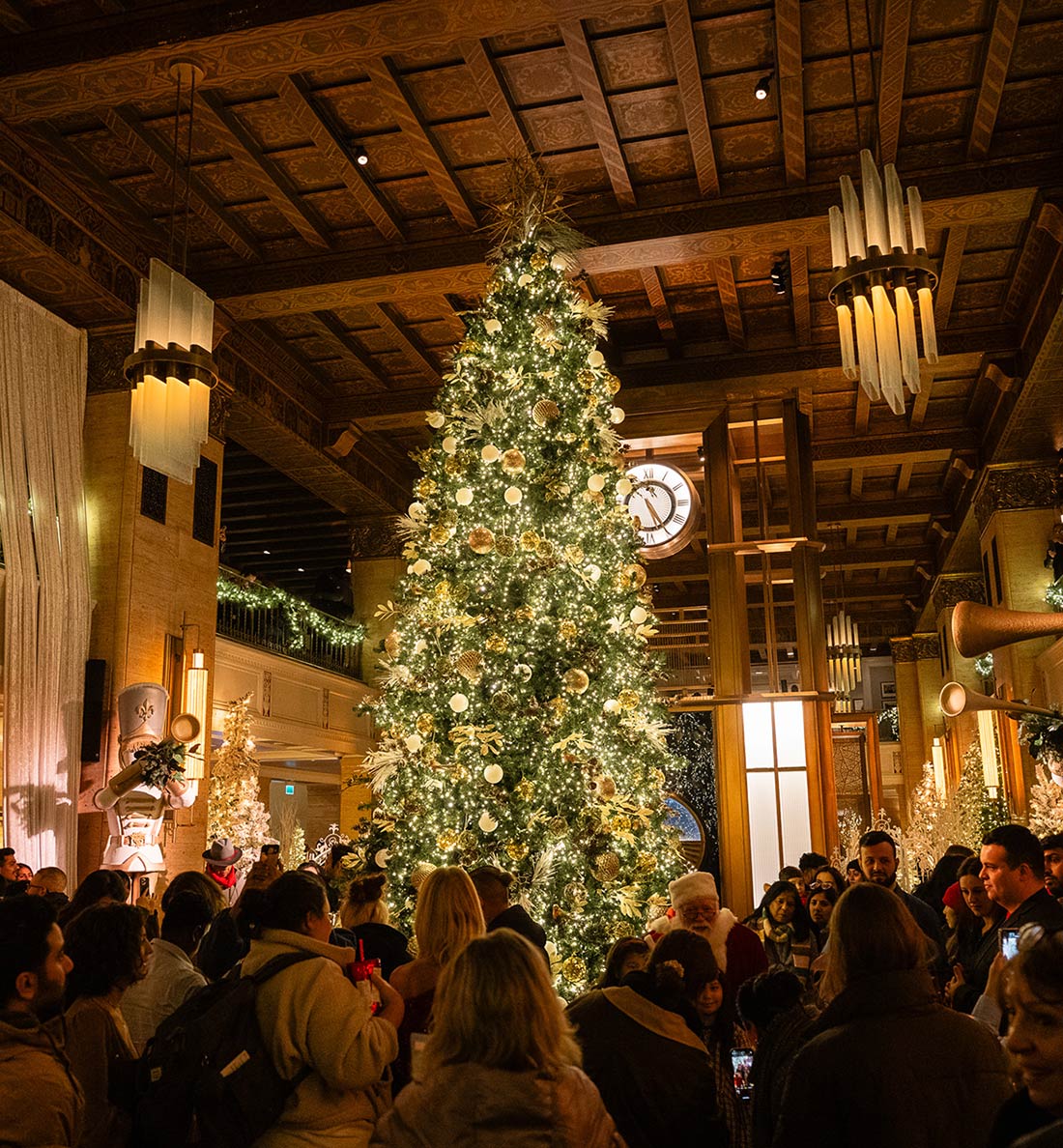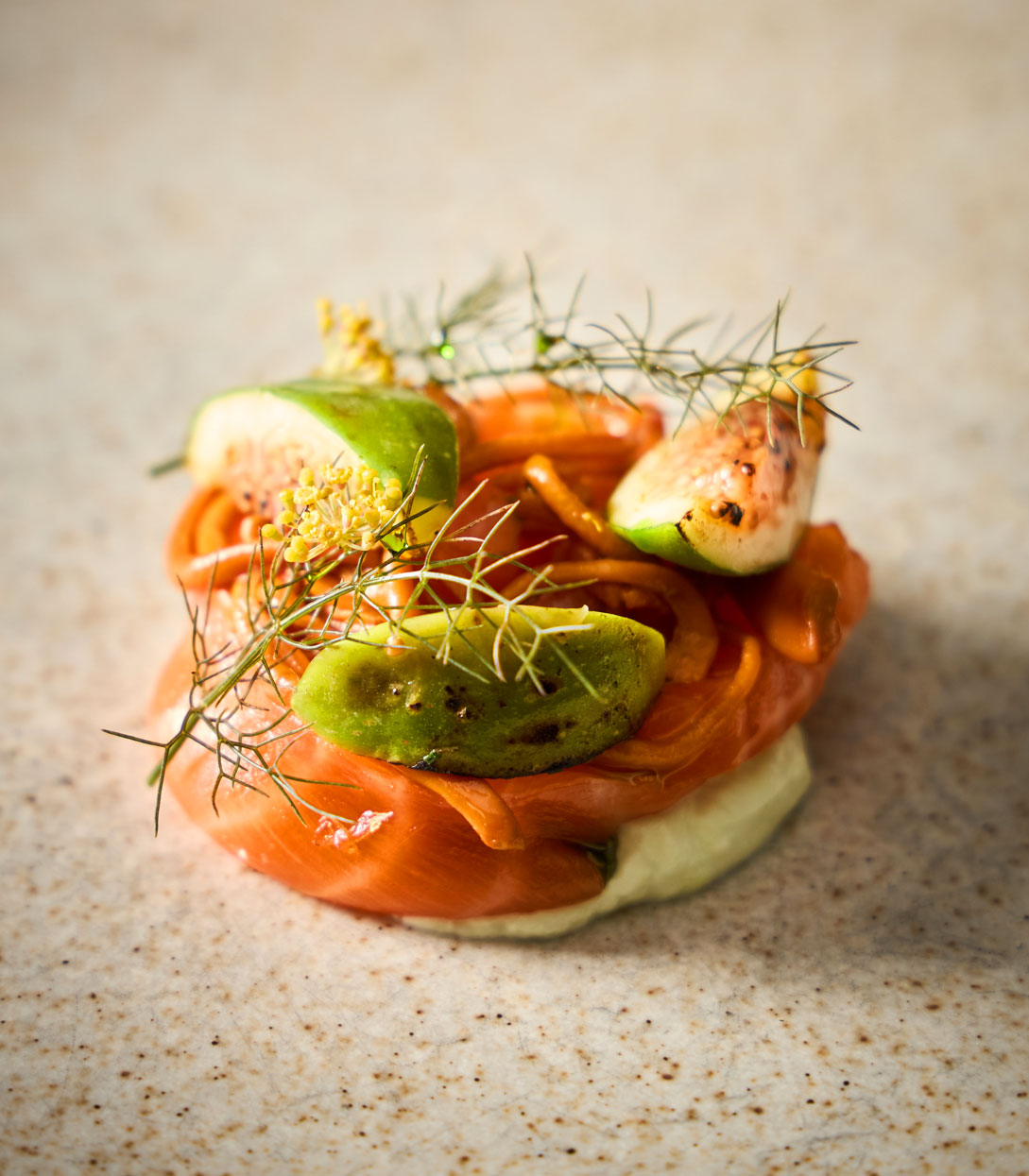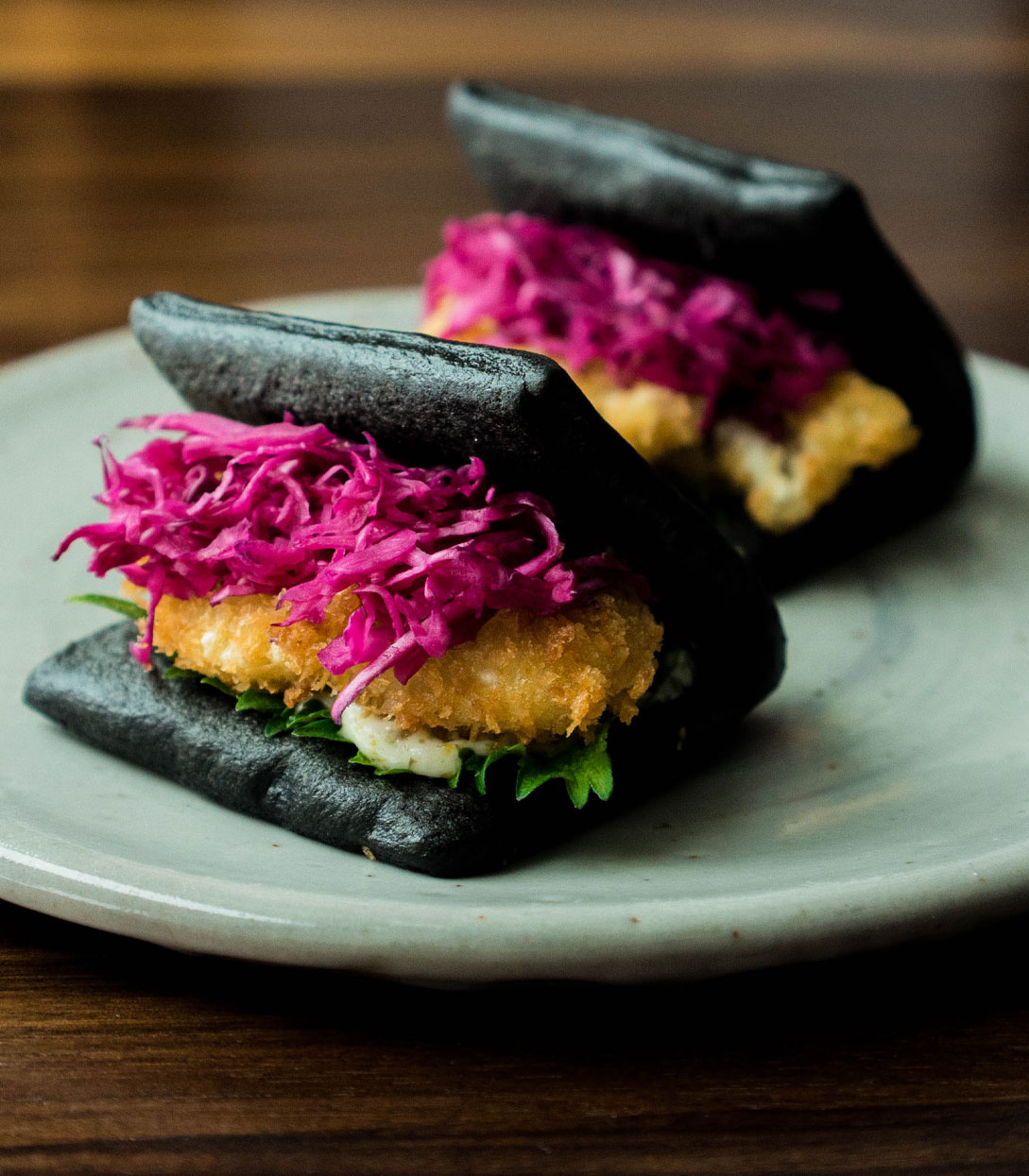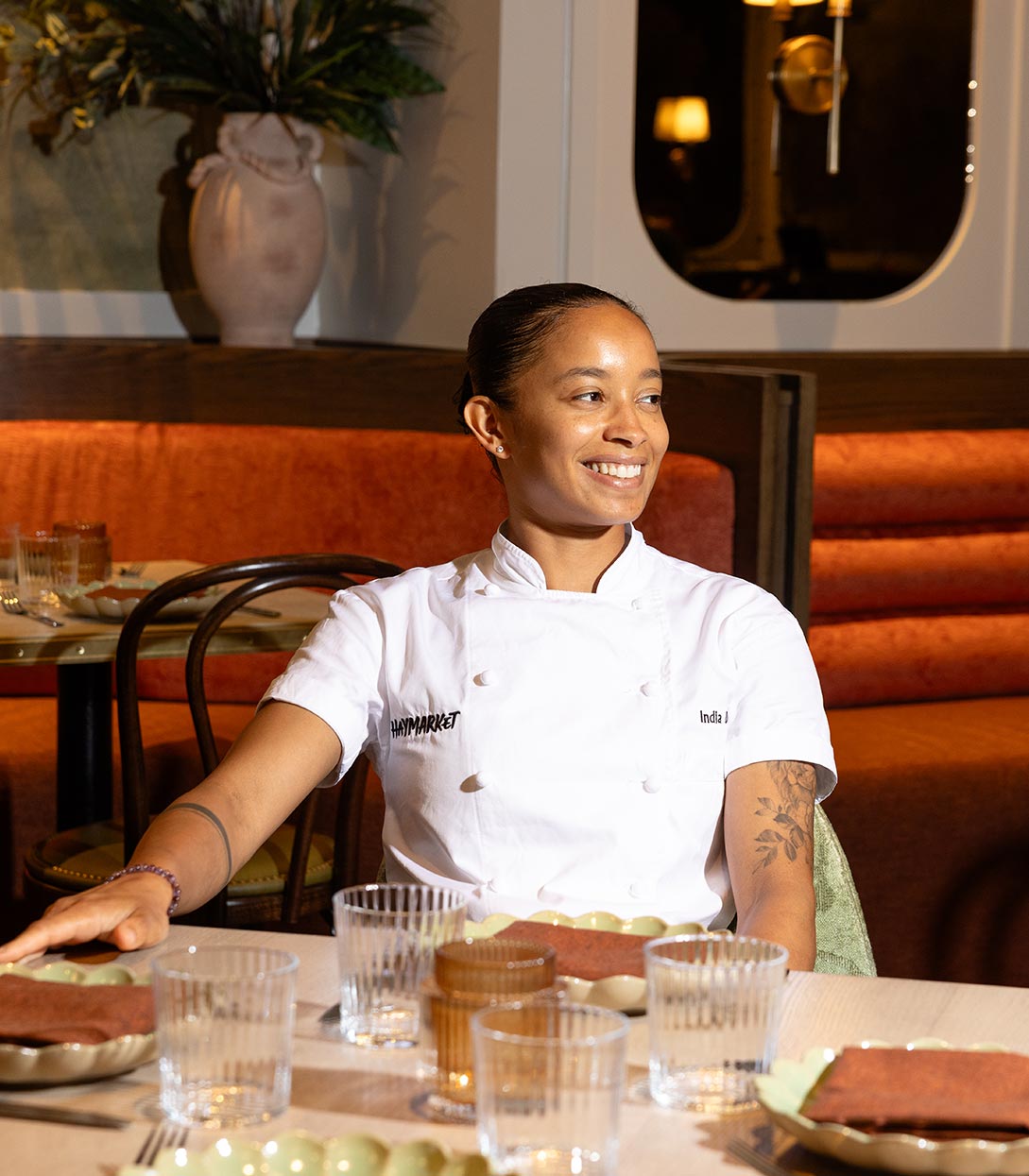Next to Pigeon Park, PiDGiN is named after pidgin languages, which take bits of existing languages to create new ones. In the cultural melting pot of Vancouver, the restaurant does this through food, art and empathy. Acknowledging the city’s history, PiDGiN optimistically looks forward to the future.
Before you dive into the story below, find out what our Inspectors had to say here.
Owner Brandon Grossutti went from algorithmic trading to opening PiDGiN. “Going out of the [2008 financial] crash, it was the way to have some connection again," says Grossutti. "It was basically trying to go from something that was 100% intangible to something that I could touch and taste and smell and feel.”
Previously working as a chef and as a commercial fisherman, Grossutti had yearned to return to food. Now a decade into his dream job of operating PiDGiN, he works with a dream team of passionate and caring people, led in the kitchen by chef Wesley Young.
Introducing the chef, Grossutti wipes away tears, noting, “Wes is an empathetic, nice and patient leader. Setting an example for just about everybody in this industry. I'm getting teary, but I love this guy.”

PiDGiN’s care for others is clear the moment diners approach the restaurant. Outside, a historical mural by Ilya Viryachev acknowledges tough moments in Vancouver’s history from 1855 to 1955. “The genesis of Vancouver is within 100 meters of here," explains Grossutti. "We wanted to show the history of indigenous culture, a little bit on Chinese culture, Japanese internment.”
It took two years for PiDGiN to plan the mural. “One of the hardest parts was actually sitting down with cultural leaders and elders. We spent a lot of time with the Musqueam, trying to get an understanding of how things looked, whether or not they were okay with us even doing this.”
Next, the mural illustrates Chinese railroad workers during the Gold Rush, focusing on how people were treated. “What we wanted to do more than anything was in the forefront, put the people that were most disenfranchised or taken advantage of.”
The finale looks towards Canada’s future. “I wanted to finish with an indigenous woman ripping up the Indian Act,” says Grossutti. “One of the strongest newest parts of Canadian culture is the empowerment of our indigenous population, as well as ensuring that women are at the fore, and how that pushes culture in a good direction.”

Building off this graphic slant, the restaurant has an artist-in-residence program, a concept that Grossutti says, “highlight[s] artists that are great, but not getting the recognition they deserve. The idea is to help advance their careers.” Previous artists-in-residence include Ola Volo, Sean Karemaker, Priscilla Yu, Jay Senetchko, Katie So, Johnny Taylor, Kari Kristensen and Tara Lee Bennett. “It's just fun to hang out. We have a room full of creatives that are just inspiring and amazing.”
Inside the restaurant, the decor is straightforward. “It’s quite stark, it's beautiful wood, very much a Norwegian/Japanese joinery with lots of white,” describes Grossutti. “The intention was people were the things that made things pop, so you would focus on people you're with, rather than the distractions.”
Other than a few pigeon replicas, it's all about the conversation and the cuisine.
This artistic intersection makes its way onto the menu. Chef Young collaborates with the artist-in-residence to create special dishes. Most recently, this included a fish inspired by Kristensen’s Nordic roots and a layered dessert to complement Bennett’s paper creations.
Overall, the menu focuses on European techniques, Japanese flavors and local Canadian ingredients from the Okanagan and Fraser Valley. Mirroring its namesake pidgin language, PiDGiN “bring[s] those foods together in a way in which they create something wholly new.” Grossutti explains, “You have touchstones that you recognize, whether it be the technique, or the flavor, or the culture, but we're putting it together in a way that you've never seen.”
The tasting menu is based on local seasonality and can include wagyu, Maitake mushroom tempura, and seafood prepared with Kombujime techniques (curing between seaweed). For à la carte, an emblematic dish from day one is the Quebec-sourced foie gras rice bowl. Grossutti, being Italian with a Korean wife, personally loves the Korean rice cake with gochujang bolognese.
Meals are complemented with sake from local brewers. Grossutti says, “Being able to push sake in Vancouver is my passion. It naturally pairs so beautifully. How many different ways it can be treated, aged, flavored, and how much passion and love goes into making it perfect.”
The restaurant’s music is also an ode to pidgin: it consists of “a couple thousand tracks that the whole team has accumulated over the years.” Grossutti explains, “You're going to get 90s hip hop, classical, these things all mixed together, which is our clientele as well. You're like, ‘Did I just hear that? What the?’ And that's what's lovely about it.”
“Canadian culture as a whole is trying to work towards the things that we know are right. The way that we treat people, we try to do what's right.” Grossutti concludes, “After 10 years, it's [about] the people that are inside these walls. It is about building a community, taking care of people. That's all that really matters at this point.”






